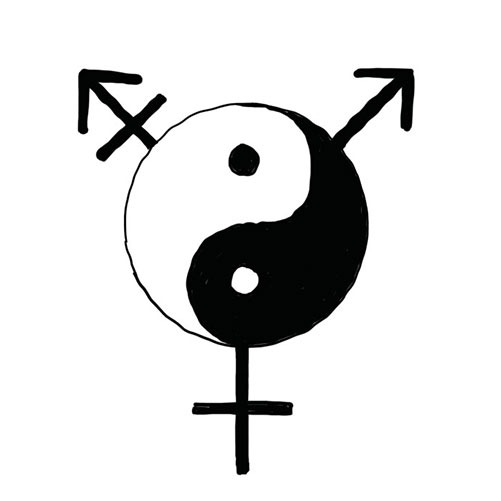I’m convinced that some readers will probably already have had a reaction on seeing this “provocative” – or even disturbing – title.
Don’t worry. We won’t be discussing gender-related issues or stereotyping. Let’s avoid the danger of misrepresenting and oversimplifying the question of human diversity.
Of course, diversity is an asset. We have known this for a long time, but we find it difficult to apply the principle consciously and deliberately. That the different genders be represented at all levels, on company boards, in management and in executive positions is therefore important. Provided, of course, that a candidate has the expertise required for a given position.
But what about the leadership qualities required to respond to the present global situation and the events we have had to cope with over the last three years (pandemic, war, global warming, the energy crisis, supply chain problems, the shortage of qualified staff, the rise in mental health problems…)? In recent years, we have become familiar with a world marked by volatility, uncertainty, complexity and ambiguity (VUCA for short), a constantly changing environment that is unpredictable, complicated and difficult to interpret. Now we can add a further acronym to our vocabulary: BANI. The consequences of this environment are greater fragility (B = Brittle), growing anxiety (A = Anxious), non-linear, exponential effects (N = Non-linear) and general bewilderment (I = Incomprehensible).
What kind of leadership is needed in such a context or, to put it differently, what influence do these events have on the qualities required of leaders?
Two different surveys, one undertaken this year and one last year, come to similar conclusions.
The leadership required in such situations is characterized by a sensibility that could be described, using a generally understood term, as more “feminine”.
In reality, leadership is neither sex- nor gender-related. Instead, let’s take the yin and yang symbol as our model. We human beings – men, women and indeed people of all genders (LGBTiQ+) – have different sensibilities, which may be more or less pronounced, more or less developed, depending on our experience of life. Within each of us, there is a balance of these different aspects, these different sensibilities. As with the yin and yang symbol, some aspects are more evident, more pronounced than others, depending on our individual positioning.
So, now we have clarified these points, let’s see what these two surveys have revealed.
- The first survey was carried out in 2021 by Soufyane Frimousse and Jean-Marie Peretti, and was published in Issue 4 of the “Question(s) de Management” review[1]. One hundred and thirty-nine teachers/researchers, company leaders, HR managers, operations managers, experts and consultants from 21 countries replied to the question: “In the post-Covid organization, what style(s) of management should be given priority?”
- The second survey was the result of a number of workshops I ran in French-speaking Switzerland with Economie Suisse Romandie Executive Board member Christina Gaggini and in German-speaking Switzerland with KMU Swiss. We invited women in positions of leadership to consider the added value contributed by women leaders and the aspects/sensibilities that are regarded as more “feminine”. Roughly thirty leaders from both SMEs and larger Swiss companies, in both the public and private sectors, gave their input.
Without going into detail and considering each subject in depth, what are the main points that emerge from these two surveys?
The results are very similar, very often corroborating and sometimes supplementing one another.
Belonging
Employees need to feel they are part of a group, of something bigger than themselves. The significance of their work and their contribution to the whole (the organization) makes them feel less alone. Introducing “rituals” is a good way of enhancing this sense of belonging. Establishing clear points of reference will also contribute to this sense of togetherness.
Self-reflection
There is no such thing as superman or superwoman. As a manager and leader, you have to be brave enough to show your limitations, your “weaknesses”, and sometimes to ask for help. Conversely, you need to be aware of your strengths, so that you have the courage to take decisions and break new ground. Boldness and courage are important qualities. To use an expression often attributed to Nelson Mandela:
As we are liberated from our own fear, our presence automatically liberates others.
Another aspect of self-reflection is learning from our mistakes, thus developing resilience and, ultimately, boosting the psychological security of those around us.
Power-sharing by fostering others’ development
By strengthening the autonomy of their teams, leaders encourage, develop and allow others to take on responsibility (in the sense of “accountability”).
Transparency
Being transparent in one’s actions, decisions and what one says promotes fairness (as well as the sense that justice is being done).
Empathy
Active listening and taking a real interest in other people (both in their work and in them as people) also emerged as being very important in the current context. This also promotes kindness.
Positive dynamic
Finally, through their attitude, example, values and behaviour leaders establish and maintain a positive dynamic. While cultivating an attitude of humility, they lead the team to greater things.
This “softer” or more “feminine” sensibility and approach to leadership deserves special consideration in the present circumstances. It needs to be valued if we are to emerge, step by step, from the current crisis without leaving our employees to struggle on their own.It will enable us all to regain our confidence.
[1] EMS Editions “Question(s) de management”, 2021/4, no. 34, pages 97 to 171, ISSN 2262-7030

